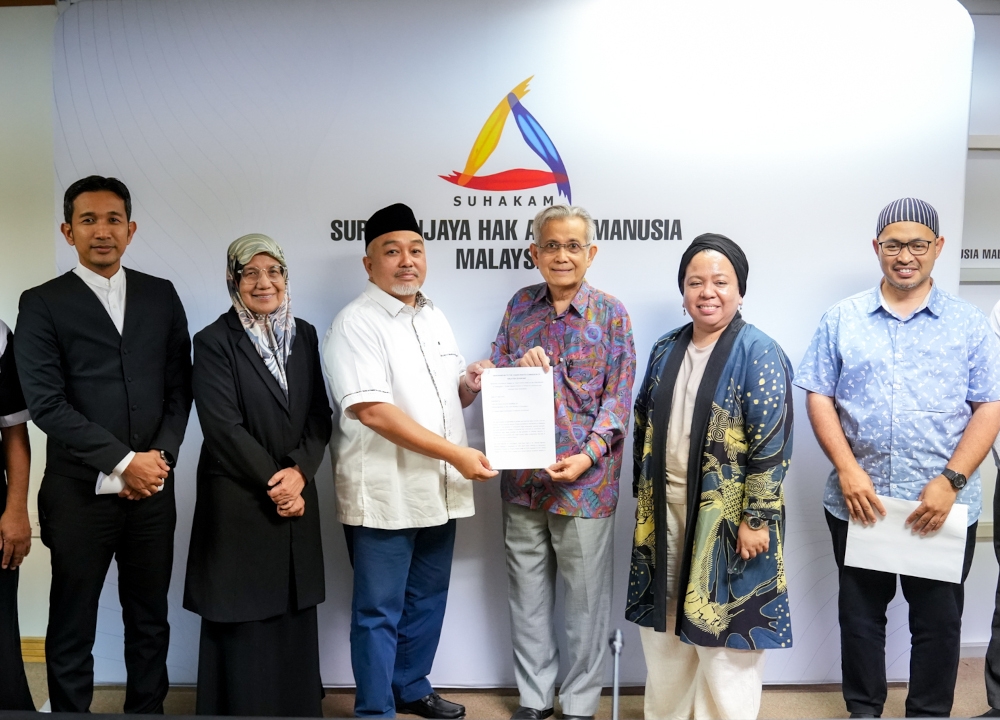登嘉楼州务大臣的抗议与马来西亚的人权关注
“过度监控”背后的政治迷雾
马来西亚登嘉楼州务大臣萨姆苏里(Samsuri) recently submitted a protest memorandum to the Human Rights Commission of Malaysia (Suhakam), accusing himself of being subjected to “excessive surveillance” and implying political persecution. This event has sparked widespread concern and debate about Malaysia’s political landscape and human rights issues.
The term “excessive surveillance” is vague and can refer to government agencies closely monitoring an individual’s movements, communications, social media, or excessive interference in their political activities. In a political context, “excessive surveillance” is often associated with abuse of power and political persecution. Therefore, Samuri’s accusation is a direct challenge to the Malaysian government, questioning whether certain departments are abusing their power.
The Role and Challenges of the Human Rights Commission
The Human Rights Commission of Malaysia (Suhakam) is an independent institution responsible for promoting and protecting human rights in Malaysia. Its duties include investigating allegations of human rights violations, providing recommendations to the government, and raising public awareness of human rights. Samuri chose to submit his protest memorandum to Suhakam, expressing his trust in the institution and hoping that an independent investigation will reveal the truth and protect his legal rights.
However, Suhakam faces many challenges in Malaysia’s political environment. Firstly, its investigative and enforcement powers are limited, making it difficult to effectively prevent government departments from violating the law. Secondly, Suhakam’s independence is often questioned, and its investigations and recommendations may be influenced by political factors. Therefore, Suhakam’s handling of Samuri’s case will be a major test of its credibility.
Public Opinion and Political Impact
Samuri’s protest has sparked a wide-ranging discussion in Malaysian society. Some people are concerned about “excessive surveillance” and believe it infringes on citizens’ personal freedom and privacy rights. Others suspect Samuri’s motives and believe he is using this to distract from public scrutiny of his performance as a leader.
Regardless of the outcome, this event has had a significant impact on Malaysia’s political ecosystem. It serves as a reminder that while pursuing national development and political stability, it is crucial to prioritize human rights protection and prevent abuse of power. It also prompts reflection on how to balance maintaining national security and social order with maximizing personal freedom and privacy rights.
Legal Controversy over Allegedly Blasphemous Post
As the Samuri event unfolds, another news story has grabbed Malaysia’s attention. The Malaysian Islamic Development Department (Jakim) has called for legal action against a post that allegedly mocks Islam. This event has once again raised questions about Malaysia’s religious sensitivities and the boundaries between freedom of speech and religious beliefs.
Jakim believes the post not only offends Muslims but also threatens the harmony between different religions in Malaysia. They strongly urge the police to investigate and punish the perpetrator. However, some people argue that freedom of speech should be respected, and even if certain speech is offensive, legal intervention should not be used lightly.
The outcome of this event will significantly impact Malaysia’s freedom of speech. If the government imposes severe penalties for such speech, it may create a “chilling effect,” limiting public discussion and criticism of religious issues. Conversely, if the government adopts a tolerant attitude, it may be seen as condoning blasphemy, leading to further controversy.
Malaysia’s Digital Transformation and Personal Information Security
Recently, the Malaysian Home Ministry proposed using MyDigital ID to pay traffic fines, sparking a new round of debate about personal information security. While the government emphasizes that MyDigital ID will increase efficiency and convenience, public concerns about the misuse of personal information persist.
Digital transformation is a key strategy for Malaysia’s economic development. However, in promoting digital transformation, it is crucial to prioritize personal information security, establish comprehensive legal frameworks to regulate government agencies and businesses in collecting, using, and storing personal information. Only then can public concerns be addressed, ensuring that digital transformation truly benefits all citizens.
Conclusion: Call for Transparency and Fairness
The protests by the Chief Minister of Sabah, the allegedly blasphemous post, and the promotion of MyDigital ID—these seemingly independent events all reflect the challenges Malaysia faces in politics, human rights, religion, and digital transformation.
To address these challenges, the key lies in enhancing government transparency and fairness. The government should openly address public concerns, undergo independent investigations, and take concrete measures to protect citizens’ legal rights. Only by establishing a transparent, fair, and responsible government can it gain public trust, maintain social stability, and promote development. Malaysia’s future depends on its ability to balance human rights protection, rule of law, and social harmony in a rapidly changing global landscape. Only by doing so can Malaysia maintain its competitiveness and achieve sustainable development.

